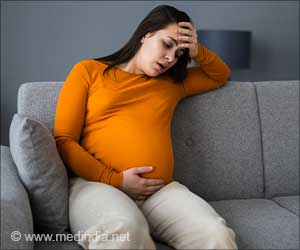Kids who have been arrested and those who are depressed are more likely to use drugs and alcohol and engage in unsafe sexual activities.
According to a study conducted by theHasbro Children's Research Center in Providence, R.I., kids who have been arrested and those who are depressed are more likely to use drugs and alcohol and engage in unsafe sexual activities. This increases their chances of contracting HIV/AIDS.
Findings of the study, published in the January issue of the Journal of Studies on Alcohol and Drugs, suggest the need for depression screenings as part of the juvenile intake process in order to determine appropriate mental health, substance use and HIV risk behavior interventions.“We know that symptoms of depression may be a factor that is linked to both drug and alcohol use and sexual risk-taking behaviors,” said lead author Marina Tolou-Shams, Ph.D., of the Bradley Hasbro Children’s Research Center and an assistant research professor of psychiatry at The Warren Alpert Medical School of Brown University. “However, juvenile offenders aren’t routinely screened for emotional difficulties, such as depression or anxiety – rather, everyone tends to focus more on their conduct or behavioral problems.”
She said that understanding more about the association between depression and risky behaviors can help create protocols for appropriately screening, assessing and identifying the needs of juvenile offenders and lead to positive health outcomes.
The current study is one of the first to examine the link between substance use, mental health and sexual risk among high-risk youth who have an arrest history but may not have been detained or incarcerated. According to Tolou-Shams, these kids may be at similar risk to those detained but are often released back to the community without ever having their needs comprehensively identified.
Researchers assessed the depressive symptoms, sexual behavior, substance use, risk attitudes and mental health history of 835 sexually active adolescents and young adults, ages 15 to 21, from Providence and Atlanta who participated in a larger, multi-site HIV prevention program. A quarter of the study participants had an arrest history.
They found that juvenile offenders with significant symptoms of depression, such as feelings of loneliness or worthlessness, reported much greater drug and alcohol use. They were also more likely to use these substances during sex, used condoms less, and had more psychiatric hospitalizations and suicide attempts than arrestees without depressive symptoms.
Advertisement
“Models of juvenile correction that address mental health and physical health are crucial, because arrestees’ contact with the legal system may represent one of few opportunities to address health issues,” the authors said.
Advertisement
LIN/K











